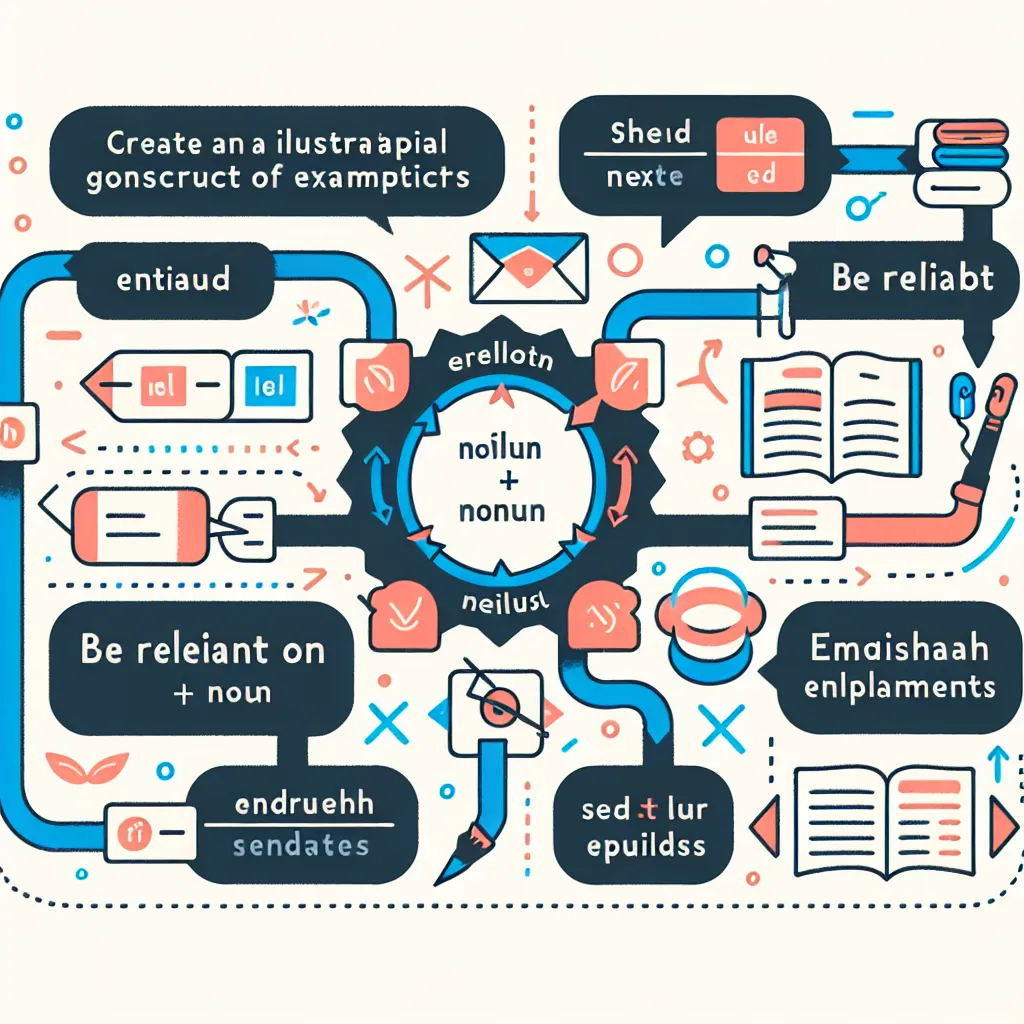The “be reliant on + noun” structure is a crucial grammatical pattern that frequently appears in IELTS exams. Understanding and using this structure effectively can significantly enhance your performance across all sections of the test. Let’s delve into its meaning, usage, and application in IELTS contexts.
Understanding the “Be Reliant on + Noun” Structure
The phrase “be reliant on + noun” means to depend on or need something or someone. It’s commonly used to express dependency or the requirement of a particular resource, person, or concept. This structure is particularly relevant in discussions about economics, technology, and social issues – all common themes in IELTS exams.
Examples:
- Many developing countries are reliant on foreign aid for economic growth.
- Our modern society is heavily reliant on technology for daily operations.
- The success of the project was reliant on teamwork and effective communication.
In these examples, the structure clearly shows the dependency relationship between the subject and the noun following “reliant on”.

Grammar and Usage in IELTS
Formula and Grammatical Analysis
The basic formula for this structure is:
[Subject] + [be verb] + reliant on + [noun/noun phrase]
- The subject can be a person, thing, or concept.
- The “be verb” should agree with the subject in tense and number.
- “Reliant on” remains unchanged.
- The noun or noun phrase represents what is depended upon.
Application in IELTS Writing
In IELTS Writing Task 2, this structure can be particularly useful when discussing dependencies in various contexts:
-
Environmental issues:
“Many ecosystems are reliant on specific climate conditions for survival.” -
Economic topics:
“Developing nations are often reliant on foreign investment for economic growth.” -
Technology and society:
“Modern businesses are increasingly reliant on digital infrastructure for daily operations.” -
Education:
“The success of online learning is reliant on students’ self-discipline and time management skills.” -
Healthcare:
“Rural communities are often reliant on telemedicine for access to specialized healthcare services.”
Using the Structure in IELTS Speaking
In the Speaking test, incorporating this structure can demonstrate your grammatical range:
Examiner: “How important is technology in education?”
Candidate: “I believe education today is heavily reliant on technology. Students are reliant on online resources for research, and many schools are reliant on digital platforms for delivering lessons, especially since the pandemic.”
Sample Paragraph for IELTS Writing Task 2
Question: “Some people believe that modern society is too reliant on technology. Do you agree or disagree?”
Sample answer:
It is undeniable that modern society is increasingly reliant on technology for various aspects of daily life. From communication to transportation, we are reliant on digital devices and systems to function efficiently. While this dependency has brought numerous benefits, such as increased productivity and improved access to information, it also raises concerns. Critics argue that we have become overly reliant on technology, potentially compromising our ability to function without it. For instance, many individuals are now reliant on GPS navigation, potentially eroding their natural sense of direction. Moreover, businesses are heavily reliant on computer systems, making them vulnerable to cyber attacks. However, I believe that the advantages of technological reliance outweigh the drawbacks, as long as we maintain a balance and develop contingency skills.
This paragraph effectively uses the “be reliant on + noun” structure multiple times, showcasing grammatical range and addressing the question directly.
Tips for Achieving Higher Band Scores
To score higher in IELTS, consider these advanced uses of the structure:
- Use modifiers: “Increasingly reliant on, Heavily reliant on, Overly reliant on“
- Incorporate it into complex sentences: “While being reliant on technology has its benefits, it also poses challenges for society.”
- Use it with different tenses: “In the future, we may become even more reliant on artificial intelligence.”
- Combine with other structures: “Not only are we reliant on smartphones, but we also depend on the internet for most of our daily tasks.”
Common Mistakes to Avoid
-
Incorrect preposition: “Reliant of” or “Reliant in” instead of “Reliant on”
Correct: We are reliant on renewable energy sources.
Incorrect: We are reliant of renewable energy sources. -
Using it as an adjective without “be”:
Correct: The project is reliant on funding.
Incorrect: The reliant on funding project… -
Forgetting to use a noun or noun phrase after “on”:
Correct: They are reliant on government subsidies.
Incorrect: They are reliant on. -
Misusing singular/plural agreement:
Correct: The company is reliant on skilled workers.
Incorrect: The company are reliant on skilled workers. -
Using it with intransitive verbs:
Correct: The success of the program is reliant on community participation.
Incorrect: The program relies reliant on community participation.
Conclusion
Mastering the “be reliant on + noun” structure can significantly enhance your IELTS performance. It allows you to express complex ideas about dependency and relationships in various contexts. Practice incorporating this structure into your writing and speaking, paying attention to the common mistakes mentioned. Remember, the key to success in IELTS is not just knowing the structure, but using it naturally and appropriately in context.
For further practice, consider using this structure in essays about topics like the impact of rising sea levels on coastal communities, how renewable energy influences national security, or the future of organic farming. These topics often involve discussions of dependency and reliance, providing excellent opportunities to showcase your mastery of this grammatical structure.